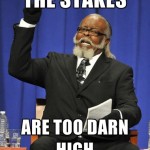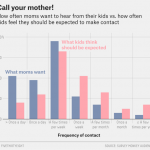When I was little, one of my favorite things to read was the science magazine Muse, but I’ve finally found a suitable substitute for adults. After poking around on the Nautilus website, I finally became a subscriber, and had a wonderful time reading my first print magazine. A number of their articles and blog posts have turned up in my Quick Takes over the last few months, and I strongly suspect a bunch of my readers (and your children, if applicable) would really enjoy this science quarterly. It has such a keen sense of delight.
Want a sample? Try “The Vulgar Mechanic and his Mechanical Oven” that introduces Cornelis Drebbel, the inventor of one of the first mechanical feedback loops – an oven that kept its temperature stable. Telling his story means explaining the (very clever!) mechanism and contrasting philosophy of science with the assumptions of alchemy.
What’s remarkable about Drebbel today, other than the fact the bewitching Dutch genius is so little known, is how much he has to teach us about the birth and progress of science. He built his oven at a time when a “vital” worldview, in which inanimate objects contain living energy, forged a prelude to the mechanical age.
“Drebbel’s circulating oven,” as historians of science now call it, included an early thermometer with a heat scale. It regulated itself with a feedback-control device that is a progenitor of the ubiquitous systems that regulate the air we breathe in homes, offices, trains, planes, and automobiles. His oven is one of the earliest devices that gave human control away to a machine and thus can be seen as a forerunner of the smart machine, the self-deciding automaton, the thinking robot.
It’s an ironic tale because Drebbel’s oven also embodies a vitalist spiritual philosophy. He was a master craftsman, but strictly mechanical inventions weren’t his goal. Drebbel always claimed to have drawn his wisdom from nature, declaring that he never read Latin or the classical authors, or enriched his writing with ancient wisdom. He regarded inventions like his oven as public demonstrations of the elemental forces of nature—earth, water, air, fire.
One science story that matches Nautilus‘s joy well is the recent announcement that non-NASA scientists have taken over a spaceship (ISEE-3) that NASA was prepared to abandon. The probe had been sent a shutdown signal that apparently didn’t take, and by the time it was next in our neighborhood, we no longer had the hardware to send it commands, and NASA wasn’t willing to rebuild.
xkcd had a strip suggesting that people reverse engineer the designs, and get back in contact. And that’s exactly what happened. More details at io9, plus this image from the moment that control of the craft was confirmed.
This week, I finally got around to reading Leslie Jamison’s essay collection The Empathy Exams, and I’m happy all over again at her existence. I’m pretty bad about paying attention to bylines, so the release of this book was the first moment I realized that three of my favorite essays I’ve read this year (“The Empathy Exams” “Grand Unified Theory of Female Pain” and “The Devil’s Bait”) were all by the same author.
I’ve already given this book as a gift once, I’m sure I will again in the future, and, now, I give the recommendation to all of you. I like the book so much that I’ve just bought Jamison’s novel The Gin Closet sight unseen, expecting I will like it, but also just feeling pretty good about giving more money to this author.
And speaking of empathy and disease, I’m really pleased by the thoughtfulness of Sha Yao’s design of this tableware for Alzheimer’s patients.
Take a look at the picture for a moment, before reading on, and see what you can intuit about the function of various design elements. I was pleased to figure out one of them.
Ok, from the Stanford Center on Longevity’s description:
[B]lue was chosen as the color of the insides of bowls because dementia sufferers can become confused when food and bowl have similar colors, according to Smith. As spills are common when bowls are tipped to get the final bits out, Yao designed a slanted bottom that eliminates the need to tip. The cups have low centers of gravity and are difficult to knock over.
I guess dictionaries are technically assistive technology, but my engagement with them is so fleeting that I seldom think of them that way. James Somers makes a persuasive case that I should be using a better class of dictionary, that actually rewards reading.
Take a simple word, like “flash.” In all the dictionaries I’ve ever known, I would have never looked up that word. I’d’ve had no reason to — I already knew what it meant. But go look up “flash” in Webster’s (the edition I’m using is the 1913). The first thing you’ll notice is that the example sentences don’t sound like they came out of a DMV training manual (“the lights started flashing”) — they come from Milton and Shakespeare and Tennyson (“A thought flashed through me, which I clothed in act”).
You’ll find a sense of the word that is somehow more evocative than any you’ve seen. “2. To convey as by a flash… as, to flash a message along the wires; to flash conviction on the mind.” In the juxtaposition of those two examples — a message transmitted by wires; a feeling that comes suddenly to mind — is a beautiful analogy, worth dwelling on, and savoring. Listen to that phrase: “to flash conviction on the mind.” This is in a dictionary, for God’s sake.
And, toward the bottom of the entry, as McPhee promised, is a usage note, explaining the fine differences in meaning between words in the penumbra of “flash”:
… Flashing differs from exploding or disploding in not being accompanied with a loud report. To glisten, or glister, is to shine with a soft and fitful luster, as eyes suffused with tears, or flowers wet with dew.
Did you see that last clause? “To shine with a soft and fitful luster, as eyes suffused with tears, or flowers wet with dew.” I’m not sure why you won’t find writing like that in dictionaries these days, but you won’t. Here is the modern equivalent of that sentence in the latest edition of the Merriam-Webster: “glisten applies to the soft sparkle from a wet or oily surface <glistening wet sidewalk>.”
Finally, I may have warned you against the temptation of Threes/2048, but I finally have a mobile game that depends on spatial reasoning that I can recommend wholeheartedly. Monument Valley is a transfixingly beautiful game, that runs on Escher logic. You can help shepherd your silent princess avatar through the game by joining platforms through tricks of perspective or walking the wrong way down a flight of stairs.
Unlike Threes, this game tells a story, so it has a finite number of levels. It took me about a very enjoyable hour to finish, and I was as drawn in by the story as the graphics and mechanics by the time I neared the end. (The game managed to make me very nervous while playing, for spoiler-y reasons). I strongly recommend it. Oh, also, this is pretty much the only time I’ve been happy to have the sound on during a game.
For more Quick Takes, visit Conversion Diary!















